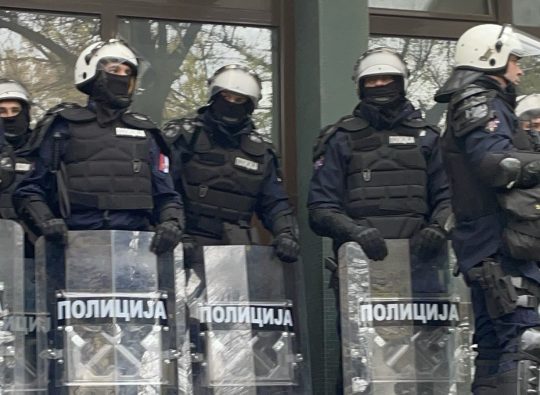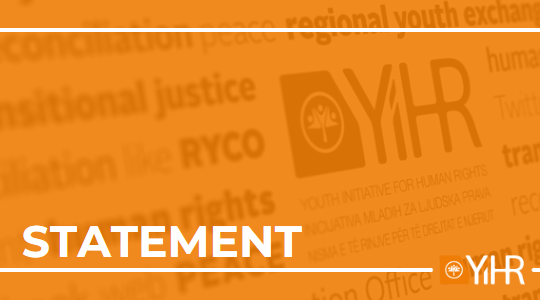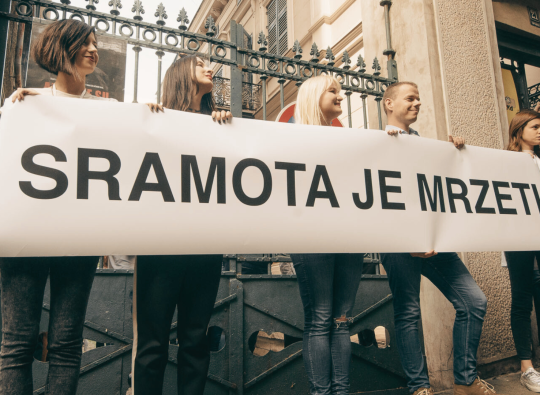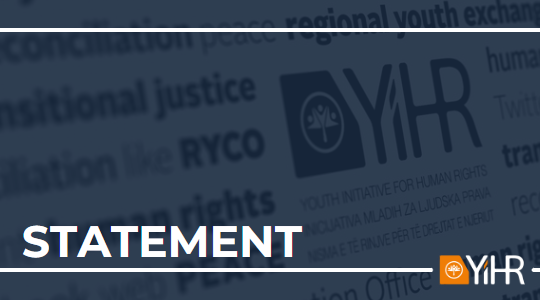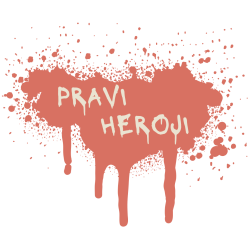In order to avoid such attacks from repeating, we demand urgent response from the prosecutor’s office regarding the hooligans who yesterday tried to completely stop the ‘Roma’ bakery from working and threatened to attack it should it start working again. The policy of impunity of bullies who interfere with citizens’ freedoms and rights can be stopped by the timely response of the prosecution, police and courts. It is important to note that among the persons present were representatives of the Leviathan organisation as well as MP Srdjan Nogo, who have been known to threaten and target political opponents.
Equally important, as a society that is very often riddled with declarative narratives of government and opposition towards violence, we must therefore show solidarity with the victims of violence. Especially given that the ‘Roma’ bakery is recognised in the local community for its charity and humanitarian work aimed at vulnerable groups, we urge all those who care about equality in Serbia to find a way to help this bakery resume its work.
Bear in mind that the lynching threats against the ‘Roma’ bakery’s owner, Mon Gjuraj, happened through a social media group when a photograph was published of an employee of the bakery making the Albanian national symbol of a two-headed eagle with his hands. The photograph was taken in 2017, but was misused as a provocation and trigger to gather bullies. However, we must warn that displaying national symbols represents freedom of expression and cannot be used as an excuse for threats and violence.
Almost five years after the abrupt ending of the Serbia – Albania football match on October 14th 2014, a number of attacks on objects owned by mostly Albanians and Gorani followed. The burning and demolition of objects occurred in several towns in Serbia, mostly on the territory of Vojvodina, as documented by YIHR in their report after having visiting said objects. Although according to the March 2016 VOICE report 5 cases were opened by prosecutor’s office for burning down bakeries throughout Vojvodina and one educational measure was imposed on a minor, one criminal charge was dismissed – none of the 62 persons identified by the police as perpetrators were prosecuted . Not even the perpetrators of the most serious attacks were discovered – in Stara Pazova and Sombor, where human lives were endangered. In qualifying these crimes, one must bear in mind that these attacks did not target only private property or religious community property, but were also a serious blow to inter-ethnic relations in Serbia.
Finally, we demand that all political parties take their stance to violence against the ‘Roma’ bakery without standard relativisations, and that the executive authorities show that ‘ethnic demarcation’ in the neighbourhood, i.e. in Borča, does not represent Serbia’s official policy and that such behaviour will not be suffered in silence nor will it be tolerated.

